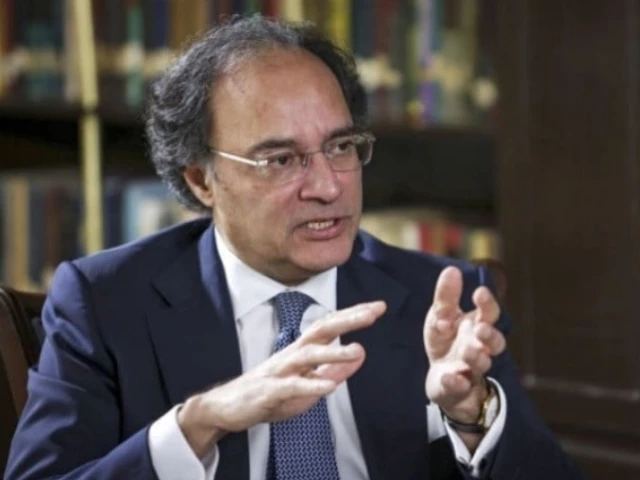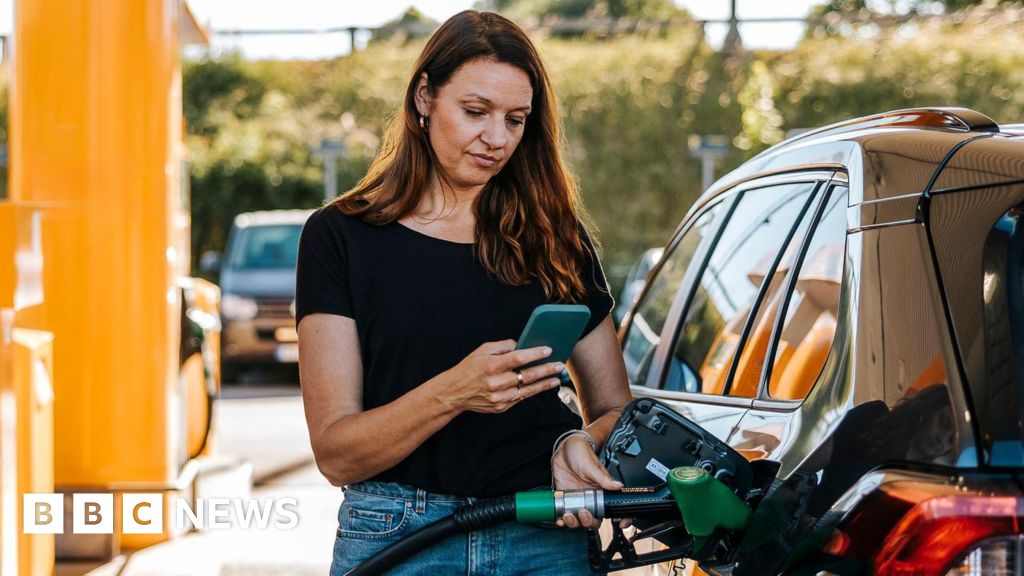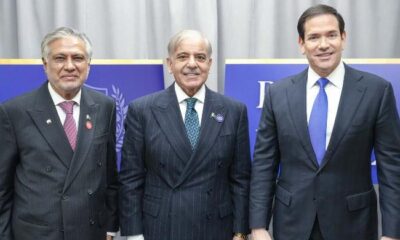Business
SBP working on exchange, interest rates for stability: FinMin | The Express Tribune

Finance Minister Muhammad Aurangzeb has stated that the State Bank of Pakistan is working on the exchange rate and interest rate, and the situation is expected to improve further.
The federal finance minister inaugurated the Job and Education Expo at the Expo Centre, Karachi, organised by the Pakistan Hindu Council. At the expo, around 120 stalls were set up by various institutions and companies for students.
Speaking to the media, Aurangzeb expressed gratitude to the organisers, saying that he had the opportunity to meet the country’s future leadership here. He noted that both public and private institutions were present at the job fair, but the absence of the corporate sector was felt.
He said that technology is the path to the future. Youth should work with their hearts and minds, and always strive for excellence.
Speaking about the Independence Day celebration of the “Marka-e-Haq,” the finance minister said that followers of all religions in the country commemorated it with great spirit.
Read: PM pushes for cashless, digital economy
He added that the corporate sector needs to step forward. Interest rate should not be made the single-point agenda.
In order to promote working capital, Pakistan must look beyond banks and include capital markets as well. He emphasised that the debt capital market also needs to be shifted to the Pakistan Stock Exchange mechanism for greater efficiency.
Aurangzeb highlighted that the circular debt in the power sector is declining, with three distribution companies (DISCOs) set to be privatised soon. He added that the government is also working to resolve circular debt in the gas sector, which has long been a burden on the economy.
On monetary policy, the minister clarified that the government has no role in setting interest rates, as this falls under the mandate of the State Bank of Pakistan. He said the exchange rate would continue to be determined by the market. Pakistan already has funding available, he noted, and the challenge now is to put those resources to effective use.
He praised Mustafa Kamal’s efforts in population control and underlined the importance of women’s economic participation, saying it could be a key driver in eradicating poverty. Aurangzeb confirmed that discussions with the World Bank regarding funding to support such initiatives have already taken place.
The finance minister said the IMF’s review mission would soon arrive in Pakistan under the ongoing 37-month programme, adding that the government remains in constant contact with the Fund. Looking ahead, he expressed optimism that by 2047 Pakistan’s economic situation would be that of a developed nation.
Aurangzeb also pointed to Pakistan’s strong anti–money laundering laws, which he said had enabled the country’s removal from the FATF grey list. He expressed confidence that Pakistan would remain off the list going forward.
Speaking on the recent rainfall damage in Khyber Pakhtunkhwa, he said his immediate priority was helping and rehabilitating affected people, while it was still too early to estimate the scale of losses.
When asked about traders’ demand for a new province, the finance minister refrained from giving a direct response.
There is no button for growth; the real thinking should be about sustainable growth. The role of the government is to provide an enabling environment. Public-private partnerships are working successfully. We are moving toward the AI world, and there is no room for doubt that we must move forward.
The finance minister said that ups and downs keep coming, but talent remains unaffected. Economic stability has now been achieved in the country.
The three major rating agencies are positive about Pakistan. The State Bank is working on the exchange rate and interest rate, and as stability increases, the situation will improve further.
Business
Limited flights leave UAE while disruption continues amid Iran strikes

From the UK, flights have also been cancelled for many Middle East destinations, including all flights to Israel and Bahrain, three-quarters of the day’s scheduled flights to the United Arab Emirates, and more than two-thirds (69%) of flights to Qatar.
Business
IIP sees 4.8% YoY growth in January; manufacturing & electricity support rise – The Times of India

India’s Index of Industrial Production saw a 4.8% increase year-on-year in January 2026, according to the Ministry of Statistics & Programme Implementation. The rise in industrial output was largely driven by a 4.8 per cent expansion in manufacturing and a 5.1 per cent improvement in electricity generation. Mining activity also supported overall growth, registering a 4.3 per cent uptick during the month.Estimates placed IIP at 169.4 for January 2026, compared with 161.6 in January 2025. This follows a stronger reading in December 2025, when industrial production had grown by 7.8 per cent. For January 2026, the sector-specific indices stood at 157.2 for mining, 167.2 for manufacturing and 212.1 for electricity.Within manufacturing, 14 of the 23 industry groups at the NIC two-digit level posted year-on-year gains in January. The strongest contributors were manufacture of basic metals, which rose 13.2 per cent; manufacture of motor vehicles, trailers and semi-trailers, up 10.9 per cent; and manufacture of other non-metallic mineral products, which increased 9.9 per cent. Growth in basic metals was supported by items such as flat products of alloy steel, MS slabs, and hot-rolled coils and sheets of mild steel.The automobile category advanced on the back of higher output of auto components and spare parts, commercial vehicles, and bus and minibus bodies or chassis. In the non-metallic mineral products segment, cement of all types, cement clinkers and stone chips were key contributors.According to use-based classification, output of primary goods grew 3.1 per cent, capital goods rose 4.3 per cent and intermediate goods increased 6 per cent compared with January 2025. Infrastructure and construction goods recorded the sharpest rise at 13.7 per cent, while consumer durables expanded 6.3 per cent. In contrast, consumer non-durables declined by 2.7 per cent. The ministry identified infrastructure and construction goods, intermediate goods and primary goods as the leading drivers of growth under this classification.
Business
Will petrol and diesel prices go up now?

There might also be a more direct impact on food. “Some elements of crude oil are used in fertiliser, and so there could be a cost implication in terms of food prices,” Benjamin Goodwin, partner at banking advisory firm PRISM Strategic Intelligence told the BBC.
-

 Politics1 week ago
Politics1 week agoPakistan carries out precision strikes on seven militant hideouts in Afghanistan
-

 Tech1 week ago
Tech1 week agoThese Cheap Noise-Cancelling Sony Headphones Are Even Cheaper Right Now
-

 Sports1 week ago
Sports1 week agoKansas’ Darryn Peterson misses most of 2nd half with cramping
-

 Entertainment1 week ago
Entertainment1 week agoViral monkey Punch makes IKEA toy global sensation: Here’s what it costs
-
Sports1 week ago
Mike Eruzione and the ‘Miracle on Ice’ team are looking for some company
-

 Business6 days ago
Business6 days agoHouseholds set for lower energy bills amid price cap shake-up
-

 Entertainment1 week ago
Entertainment1 week agoTalking minerals and megawatts
-

 Sports1 week ago
Sports1 week agoBarcelona players having ‘open and honest’ meetings to arrest poor form – Hansi Flick












